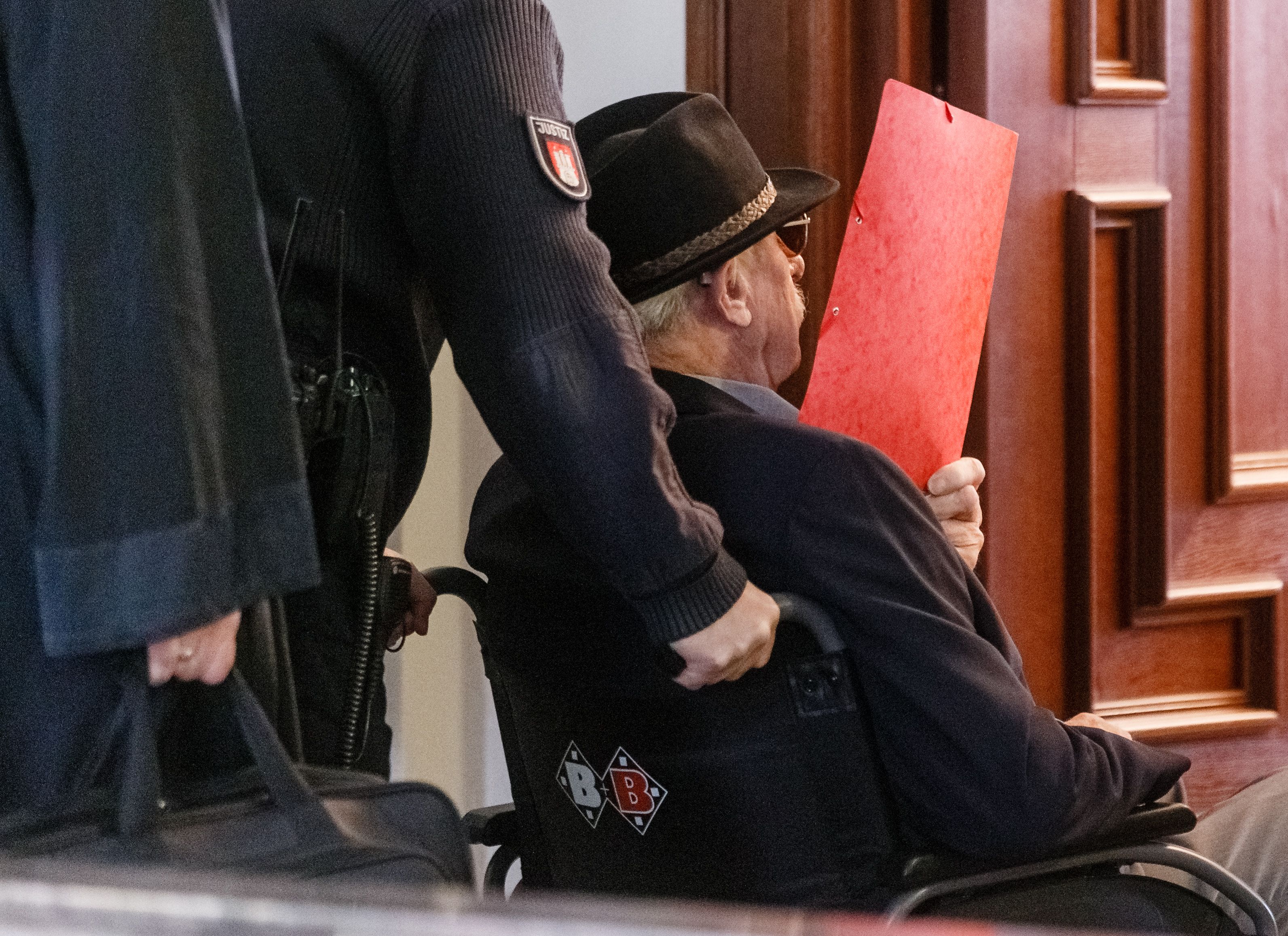“Where does responsibility end?” Bruno Dey’s attorney, Stefan Waterkamp, asked the court in his opening statement. “That is the question this trial must answer.”
On Thursday, October 24, in the unlikely setting of a juvenile court in Hamburg, Germany, Bruno Dey, a former SS guard at Stutthof concentration camp, went on trial on 5,230 counts of accessory to murder, the Washington Post reports. Dey is being tried in juvenile court because he was 17 when he started serving at Stutthof. He faces a possible six months to 10 years in prison if convicted.
The frail 93-year-old Dey was wheeled into court by family members, shielding his face from photographers with a red folder. Dr. Efraim Zuroff, representative of the Simon Wiesenthal Center, told reporters on the day of the trail that while Dey “might look weak, he’s probably trying to look as sick as possible, but when you look at him, think of him as a young man at the height of his physical powers who devoted all of his energies to mass murdering innocent civilians.”
By 1945, the Nazis murderous apparatus at Stutthof had killed approximately 60,000 people. Due to the unsanitary conditions, many prisoners died in typhus epidemics, while others were murdered by lethal injections of gasoline or phenol shot directly into their hearts, shot or starved to death, died of exposure due to inadequate or no clothing in wintertime, or put to death in a gas chamber.
Prosecutors argue that Dey played a crucial role as a guard, as he stopped prisoners from escaping the camp.
This is not the first time Dey has been questioned. He gave statements to the German police in 1975 and 1982, but faced no prosecution.
Dey has acknowledged his role at Stutthof, telling prosecutors that, “I did not know why they were there…I knew well that they were Jews who had committed no crime, that they were only there because they were Jews. And they have the same right to live and to work like any other person. But it was just that Hitler or his party…had something against the Jews.”
The case is possibly one of Germany’s last, as Dey is one of the few Nazi suspects still alive to be charged for his crimes. There has been a surge in Germany in recent years to prosecute those remaining few, with the sentencing of John Demjanjuk, a former Ukrainian POW turned Nazi collaborator, setting “a new precedent, allowing suspects to be tried as accessories to the Nazi killing machine even if they didn’t commit individual murders,” CBS News reports. Since 2013 there have been 23 charges pending against individuals with connections to the Holocaust.
In 2015, former Auschwitz guard Oskar Groening was convicted of accessory to murder using Demjanjuk’s conviction as legal precedent.
The trial of Dey offers a path of justice for the victims and their families in a time where anti-Semitism is spiking in Germany – a new study conducted by the World Jewish Congress reports that over 40% of participants surveyed said that they thought Jews “talk about the Holocaust too much.”
And while higher ranking Nazis were never put on trial for their murderous deeds at Stutthof, that “doesn’t mean that the more minor criminals are not guilty,” said Zuroff.





